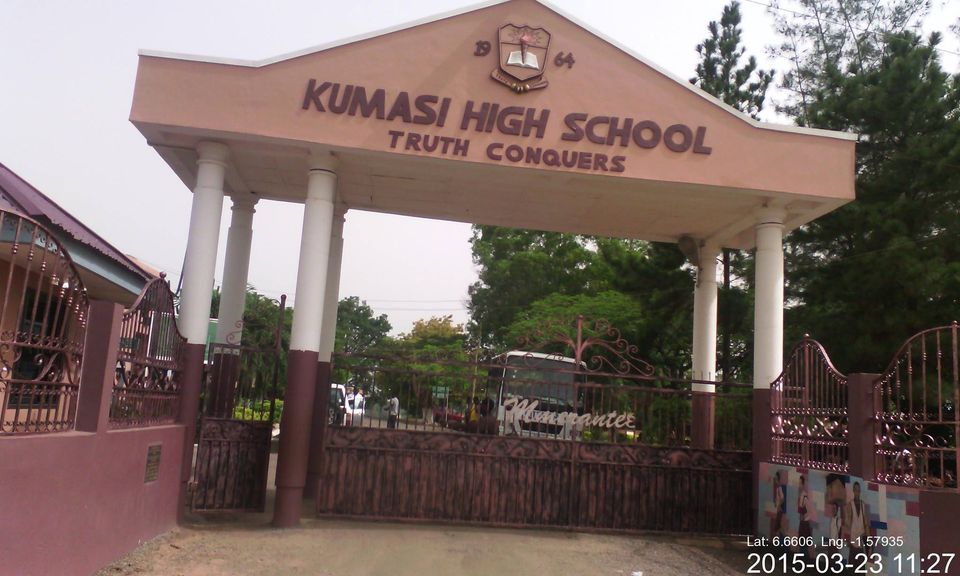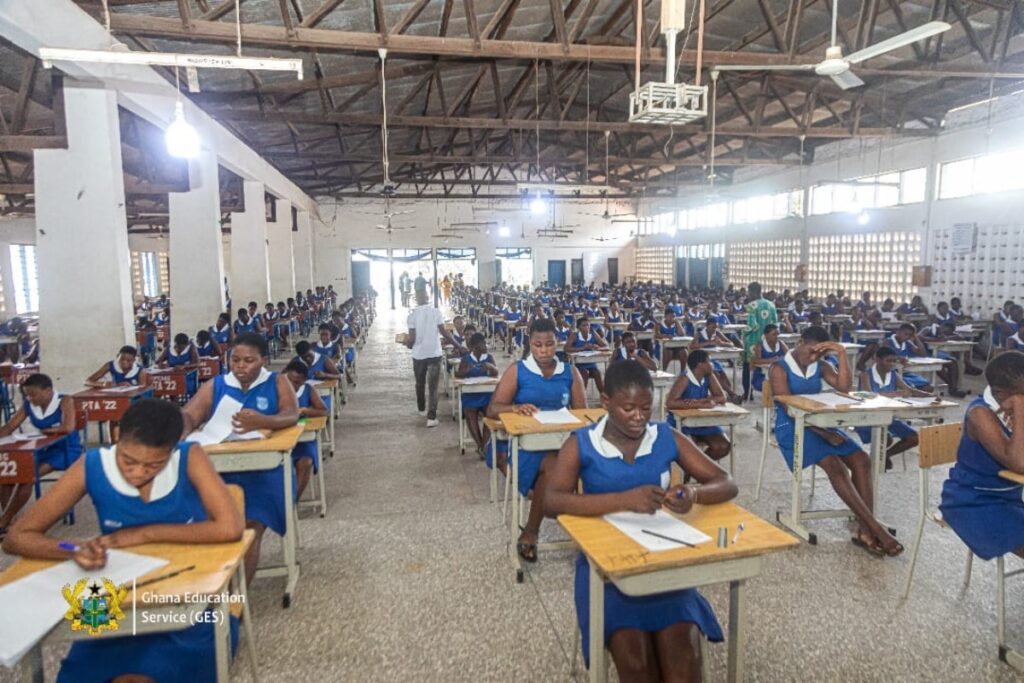Courses offered at Kumasi High School, Kumasi SHS Courses are what we going to cover in this course offered guide.
Note: All the courses listed here in this guide are from the Ghana educations service register of courses for public senior high, Technical and Vocational institutes
Before taking the Basic Education Certificate Exam, you should know what classes are offered at Senior High School (SHS) and what job opportunities are out there.
Before you decide whether or not to go to Kumasi SHS, the most important thing to do is find out what classes are offered there.
Most of the classes at SHS are the same as those at other schools. All of them are the same, and they should all be taken seriously and looked at carefully.
Most people don’t realize that the courses students take in senior high school (SHS) have a big effect on their lives when they go to college and, in some cases, when they start working.
So, it’s important to be careful when choosing SHS or Senior High School classes.
So, this page has a full list of all the SHS courses offered at Kumasi High School or Kumasi SHS, as well as the jobs that might be open to people who take those courses.
SUMMARY
COURSES OFFERED AT KUMASI HIGH SCHOOL, SANTASI (SHS)
The courses available will be mentioned alongside their elective subjects. Keep in mind that each course’s core subjects are Core Mathematics, English Language, Social Studies, and Integrated Science. The following is the courses overview:
The courses offered at Kumasi High School are listed below
- Agriculture
- Business
- Visual Art
- General Art
- General Science
COURSES WITH ELECTIVE SUBJECTS
Find below all the courses and their elective subjects to help you make good choices while entering Kumasi High School (SHS)
GENERAL SCIENCE ELECTIVE SUBJECTS
- Physics
- Chemistry
- Elective mathematics
- Biology
GENERAL ARTS ELECTIVE SUBJECTS
- Literature in English
- French
- Economics
- Geography
- History government and
- Religious studies
BUSINESS ELECTIVE SUBJECTS
- Accounting
- Business management
- Economics
- Principle of Costing or Elective Mathematics
- French
VISUAL ARTS ELECTIVE SUBJECTS
- General knowledge in arts
- Textile
- Graphic design
- Literature in English
- French economics basketry
- Leatherwork
- Picture making
- Ceramics and Sculpture
HOME ECONOMICS ELECTIVE SUBJECTS
- Management in living
- Food and nutrition
- General knowledge in arts
- Textile
- Economics and
- French
OVERVIEW OF COURSES AND JOB OPPORTUNITIES
Find out everything you need to know about each of the courses listed above, including the electives and work prospects.
GENERAL SCIENCE
This class focuses on scientific topics, and students who do well in school can go to a number of Ghanaian colleges to study science and work in the field. Some of the optional subjects are physics, chemistry, elective math, and biology.
If a student finishes this course, they can apply to any of Ghana’s science universities and study to become a nurse, doctor, or other health worker. They might also teach gardening at the university level, which would open up a lot of jobs in the field.
Engineering is another area. This is a hard field that doesn’t get enough attention. There are other job opportunities for people who study general science.
GENERAL ART
Most people think that people who study general art are either afraid of math or just don’t care. They don’t understand that there is a lot of math in this class as well as a lot of reading. It’s hard, but if you take it properly, it pays off.
This course has electives in English and French literature, economics, geography, history, government, and religion studies.
When you study general arts, you learn skills and facts that can be used in many different ways. Even though it’s a reading course, there’s a lot of practice to be done so that the skills and information learned don’t go to waste.
Among them are the fields of law, writing, teaching, communication, accounting, editing, nurse linguist, and more. All of it will depend on the BECE grade and the college or university.
BUSINESS
Another class that most students hate is the one on business. Most of all because you have to figure it out and follow a few other rules. Some of the Business electives are Accounting, Business Management, Principles of Costing, Elective Math, French, and Economics.
People know that if you study business, you will end up in the bank. In spite of what most people think, there are other business-related jobs that you could do. Some of them are business law, business administration, business counselors, teachers, CEOs of companies, bank managers, and a number of other jobs. People often stay stuck on one side because they don’t want to spread their wings and see what else they can do.
VISUAL ARTS
People think that visual arts are not as good as other subjects and are for people who don’t do well in school. It’s sad to think that way about such a great thing as school, and it’s something that needs to be fixed.
This course is called that and given the wrong grade because of a misunderstanding and lack of experience.
People all over the world who took this course are doing very well. It is very useful right from the start, and employers expect a lot from it.
Some of the optional subjects in this school are arts, English literature, graphic design, textiles, French, economics, basketry, leatherwork, sculpture, and ceramics. Some may have been forgotten.
Depending on what you study in college and how well you do, you can become a Graphic Designer, Multimedia person, Sculpture Works, videographer, Filmmaker, and so on.
HOME ECONOMICS
Home economics is a very useful field of study that can be very rewarding if done right. Some of the electives in this course are Management in Living, Food and Nutrition, Arts, Textiles, Economics, French, and some General Knowledge in Arts.
Students who finish this school can go on to work as, among other things, nutritionists, nurses, interior designers, caterers, restaurant managers, and home managers.
AGRICULTURE
In senior high school, you can also choose to study agriculture. Some examples of optional classes are General Agriculture, Animal Husbandry, Chemistry, and optional Maths.
There are connections between these courses and entrepreneurship, agricultural study, being an agricultural adviser, being a professional farmer, and other job paths.
TECHNICAL STUDIES
This is another class where you have to do a lot of work by hand and practice. This course is likely to cover woodworking, technical drawing, chemistry, elective math, building construction, physics, chemistry, electrical technology, welding engineering, mechanical engineering, and other topics.
You can do a lot of things after reading Technical programming at the SHS. IT technicians, welders, architects, building builders, engineers, robot and other machine designers, electricians, managers, and ministers are just some of the people who will gain more education.
It’s important to know that just because you took a certain class in high school doesn’t mean you’re stuck with it. You can always try new things and spread your wings to find out what you can do.
But any job can be done well if you have some of the skills you’ve learned in these classes.
FINAL WORDS
It’s important to remember that the most important thing isn’t always what you learn in high school. This is because a student can teach General Science in senior high school but then go to college to study Business.
In Senior High School, the most important thing is how serious you are. Make sure you work hard to get a good score on the WASSCE. This will make sure you get a great college education. This is the full list of










